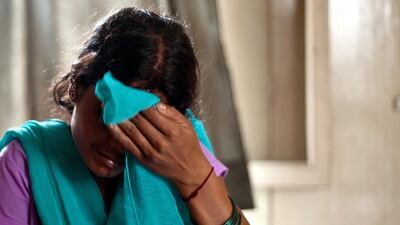Criminal networks are taking advantage of families fleeing their homes in war torn countries and are using them for forced begging, sexual exploitation and organ harvesting.
Human traffickers are feeding off the instability created by conflicts to target the vulnerable. As the link between war zones, trafficking and migrant smuggling has become more evident, the United Nations is calling on the international community to combat and end this crime forever.
“Criminal groups feed off the world's conflicts and the instability and insecurity they create,” says Yury Fedotov, Executive Director of the UN Office on Drugs and Crime (UNODC), explaining, “people forced from their homes are falling prey to human traffickers as they try desperately to escape the violence”.
Yesterday marked the World Day against Trafficking in Persons, in which the UN is promoting the Trust Fund for trafficking victims. The fund facilitates effective, on-the-ground assistance and protection to victims of trafficking, through grants to specialized NGOs.
“Resources, well-supported advocacy, cooperation under international law, and action on the ground are the starting points for tackling this dehumanizing crime that shames everyone,” said Mr. Fedotov.
Mr Fedotov says that an increasing number of countries in the Middle East, Europe and Asia have detected trafficking victims from Syria.
The latest UNODC Global Report on Trafficking in Persons found that incidents of trafficking overall has substantially increased since the beginning of the Syrian crisis in 2011. The figures may be even higher as many trafficking cases remain unreported.
For Syrian victims, the trafficking process often starts in the country of asylum where they moved for protection from the conflict zone. Almost 10% of Syrian people surveyed by the International Organization for Migration (IOM) reported at least one trafficking or other exploitative experience during their journey.
Children make up almost one-third of all human trafficking victims worldwide, according to the UN agency's latest report on trafficking. In addition, women and girls comprise 71 per cent of human trafficking victims.
One victim of human trafficking is a young girl from Edo State, Nigeria. When Grace finished secondary school, her uncle took her away from her family with the promise of securing her further education.
Away from her eight siblings and in an unfamiliar city, Lagos, her uncle and aunt put Grace to work in their beer parlour and made her wear revealing clothes. When customers frequently offered her money for sex, Grace was threatened by her aunt if she refused to comply. Her aunt then took the money, saying it would be for Grace’s education.
"I slept with hundreds of men," Grace recalls, "and never got a dime from my aunty."
One day, by chance, Grace heard a radio show about human trafficking in which a member of the African Centre for Advocacy and Human Development encouraged anyone who needed help to contact the Centre.
Grace realised this was her chance to escape and sought help.
The Centre gave Grace shelter, counseling and a medical examination. It also sponsored her training as a seamstress, gave her a sewing machine and helped her open a shop.
Today, Grace has a bright future. Her dream is to save enough money to buy more sewing machines and hire additional workers to help meet the growing demand for her clothes.
Human trafficking is the acquisition of people by force, fraud or deception to exploit them. Smuggling of migrants is considered part of human trafficking.
Victims of trafficking have been targeted for sexual exploitation and pornography, organ removal, forced begging, forced labour, forced criminality and other crimes.
In the UAE, tough anti-trafficking laws have been brought in. In 2015, the 2006 law to combat human trafficking was made more comprehensive and ensures that a person aware of a human trafficking crime and who does not report it can be punished, as well as offering more support for victims and protection for witnesses. Additionally, anyone found with the intent to commit a trafficking offence will be treated as the same as committing the crime itself.
Last year, a nationwide campaign was launched to raise awareness about human trafficking which saw adverts in different languages published in newspapers, on the radio and on airport billboards.
The UN General Assembly will discuss trafficking in persons and smuggling of migrants in a special session in Vienna, Austria in September this year.
The UN Security Council passed its first-ever resolution on this issue in 2016, as well as other calls for support and assistance on trafficking.
The UN International Labour Organization (ILO) estimates that 21 million people are victims of forced labour globally. This estimate also includes victims of human trafficking for labour and sexual exploitation.
The estimate implies that currently, there are millions of trafficking in persons victims in the world.

